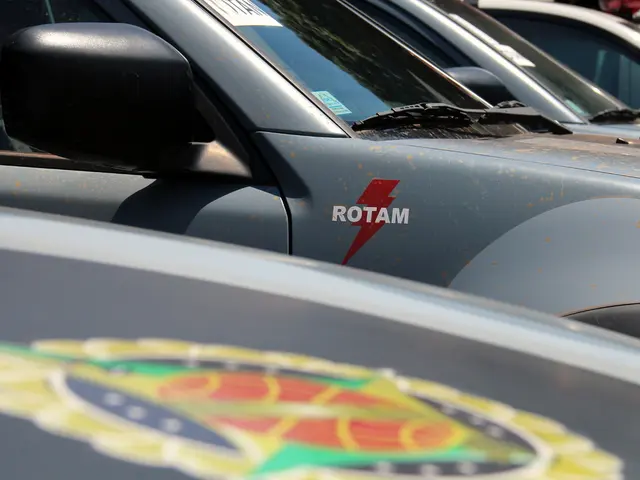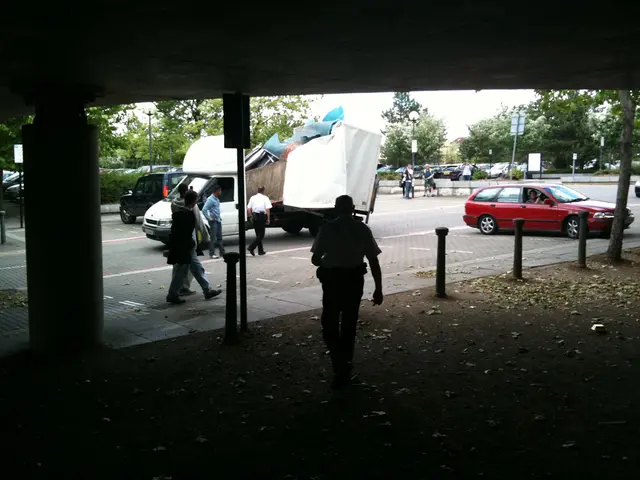Gridlock on Ringbahn: Issues with A100 bridge causing S-bahn train disruptions
Malfunctioning Mayhem: A100 Bridge Closure Causes Traffic Pandemonium in Berlin
For Berlin's hard-hit commuters, the end of the BVG strike seems to offer scant relief. The Ringbahn is currently in disarray due to catastrophic damage to the A100's Funkturm interchange bridge. The closure has halted S-Bahn traffic between Halensee and Westend, leaving these stations inaccessible, and impacting lines S41, S42, and S46.
Over a week ago, the A100 bridge, burdened by widening cracks, abruptly ceased operation, adding fuel to the city's transportation woes. Transport Senator Ute Bonde highlighted the shutdown as a crucial safety measure. In response, replacement buses currently ply the route between Halensee and Westend, while the S-Bahn network urges alternative U-Bahn routes.
Autobahn GmbH's decision to expedite the tender process centers around the bridge's imminent complete demolition and subsequent reconstruction. Although northbound A100 traffic partially resumed, the prolonged S-Bahn closure underscores the bridge's precarious state and looming three-month demolition process.
Berlin's ongoing roadwork saga includes the Neukölln freeway junction's upcoming closure for three consecutive weekends to upgrade control and display technology. This junction closure, coupled with the A100's reconstruction project, intensifies traffic chaos across the metropolis.
While the project's timeline remains unclear, the reconstruction's challenges reflect broader infrastructure hurdles in Germany. With funding availability and bureaucratic processes influencing the project's schedule, Berliners might face extended commute times in the coming months.
In a nutshell, the reconstruction of the A100 bridge will likely pose challenges for Berlin's infrastructure, but its direct impact on S-Bahn and U-Bahn services appears minimal. However, the city's transportation network could experience indirect consequences, such as traffic congestion and resource diversion.
The reconstruction of the A100 bridge, coupled with ongoing roadwork, could disrupt financing for public-transit projects within the industry, potentially causing delays and budget overruns in Berlin's transportation network. The disruption in the automotive sector due to the bridge's closure might also lead to increased reliance on alternative modes of transportation, such as bicycles or shared mobility services.








